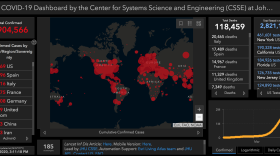
Melissa Block
As special correspondent and guest host of NPR's news programs, Melissa Block brings her signature combination of warmth and incisive reporting. Her work over the decades has earned her journalism's highest honors, and has made her one of NPR's most familiar and beloved voices.
As co-host of All Things Considered from 2003 to 2015, Block's reporting took her everywhere from the Mississippi Gulf Coast in the aftermath of Hurricane Katrina to the heart of Rio de Janeiro; from rural Mozambique to the farthest reaches of Alaska.
Her riveting reporting from Sichuan, China, during and after the massive earthquake in 2008 brought the tragedy home to millions of listeners around the world. At the moment the earthquake hit, Block had the presence of mind to record a gripping, real-time narration of the seismic upheaval she was witnessing. Her long-form story about a desperate couple searching in the rubble for their toddler son was singled out by judges who awarded NPR's earthquake coverage the top honors in broadcast journalism: the George Foster Peabody Award, duPont-Columbia Award, Edward R. Murrow Award, National Headliner Award, and the Society of Professional Journalists' Sigma Delta Chi Award.
Now, as special correspondent, Block continues to engage both the heart and the mind with her reporting on issues from gun violence to adult illiteracy to opioid addiction.
In 2017, she traveled the country for the series "Our Land," visiting a wide range of communities to explore how our identity is shaped by where we live. For that series, she paddled along the Mississippi River, went in search of salmon off the Alaska coast, and accompanied an immigrant family as they became U.S. citizens. Her story about the legacy of the Chinese community in the Mississippi Delta earned her a James Beard Award in 2018.
Block is the recipient of the 2019 Murrow Lifetime Achievement Award in Journalism, awarded by the Edward R. Murrow College of Communication at Washington State University, as well as the 2019 Lifetime Achievement Award from the Fulbright Association.
Block began her career at NPR in 1985 as an editorial assistant for All Things Considered, and rose through the ranks to become the program's senior producer.
She was a reporter and correspondent in New York from 1994 to 2002, a period punctuated by the terrorist attacks of Sept. 11. Her reporting after those attacks helped earn NPR a George Foster Peabody Award. Block's reporting on rape as a weapon of war in Kosovo was cited by the Overseas Press Club of America in awarding NPR the Lowell Thomas Award in 1999.
Block is a 1983 graduate of Harvard University and spent the following year on a Fulbright fellowship in Geneva, Switzerland. She lives in Washington, DC, with her husband — writer Stefan Fatsis — and their daughter.
-
When his wife, Kamala Harris, is sworn in as vice president of the U.S., Emhoff will also be creating history. "I'm gonna support her," he said when once asked what he'd do if she were elected.
-
The 19th amendment secured all women the right to vote, but in practice many women of color were excluded. This continues to resonate today with voter suppression among marginalized communities.
-
Tennessee was the final state needed to ratify the amendment that secured women the right to vote. At the last moment, a young state legislator switched his vote to yes after his mom asked him to.
-
The fans can't come back because of the coronavirus pandemic, so Major League Baseball will pump crowd sounds into the empty ballparks when its season begins on July 23.
-
Since it's impossible to hold mass public gatherings to mourn those who have died of COVID-19, people are creating new ways to memorialize the dead.
-
Christopher Mores is among those trying to unlock secrets of the novel coronavirus. He spends 14-hour days with his team throwing everything they have at this pathogen, looking for ways to defeat it.
-
A small team at Johns Hopkins University early on created what's become one of the most authoritative interactive online dashboards, tracking COVID-19 data around the world.
-
There have been dramatic spikes in demand for sedatives, pain medications, paralytics and other drugs that are crucial for patients who are on ventilators.
-
Authors explore questions of morality, evil, solidarity and survival in Albert Camus' The Plague, Geraldine Brooks' Year of Wonders and Karen Thompson Walker's The Dreamers.
-
In New Orleans, arguably the most far-out pre-Mardi Gras parade is staged by the Intergalactic Krewe of Chewbacchus: home to "revelrous Star Wars freaks, Trekkies, Whovians... and all super-nerds."










